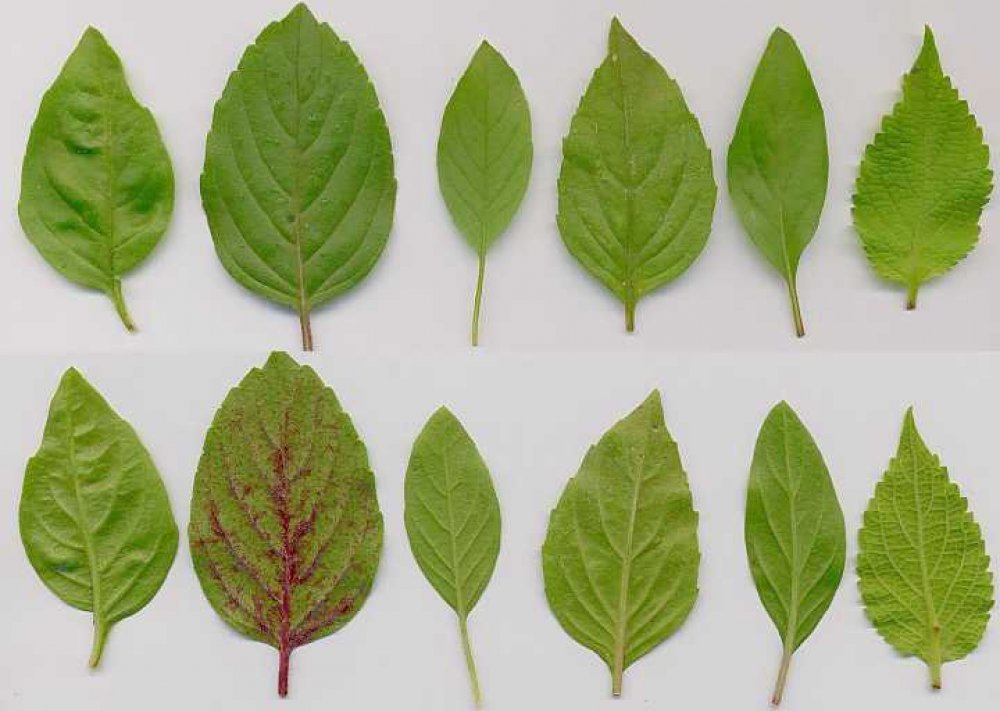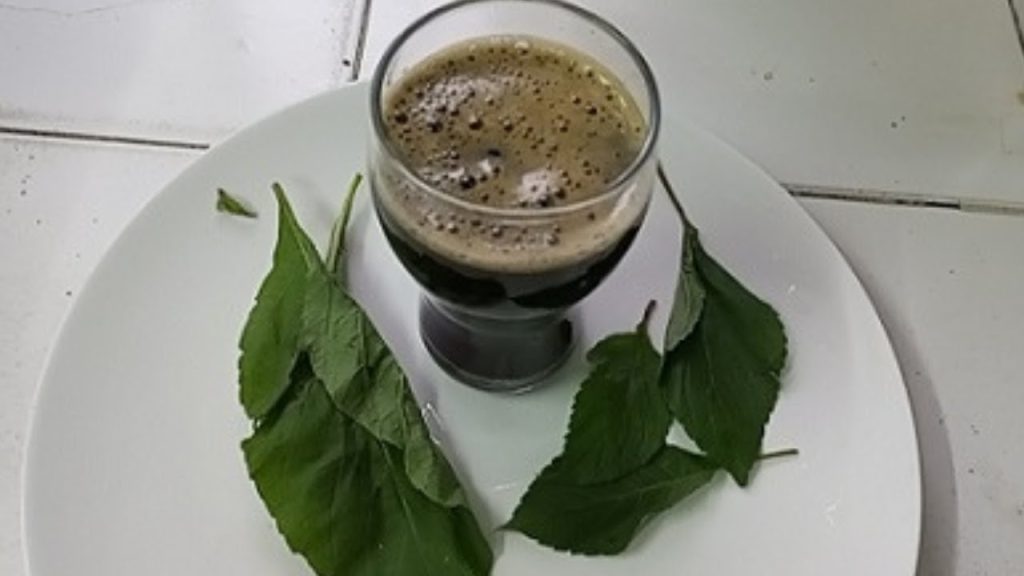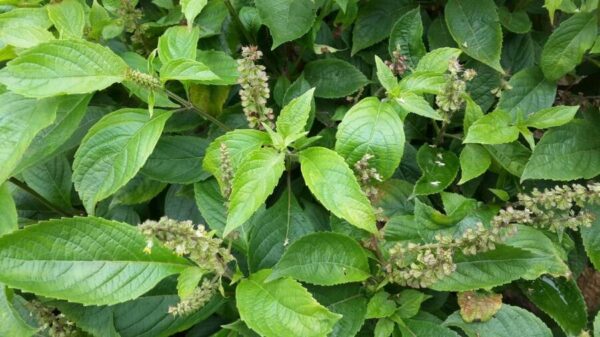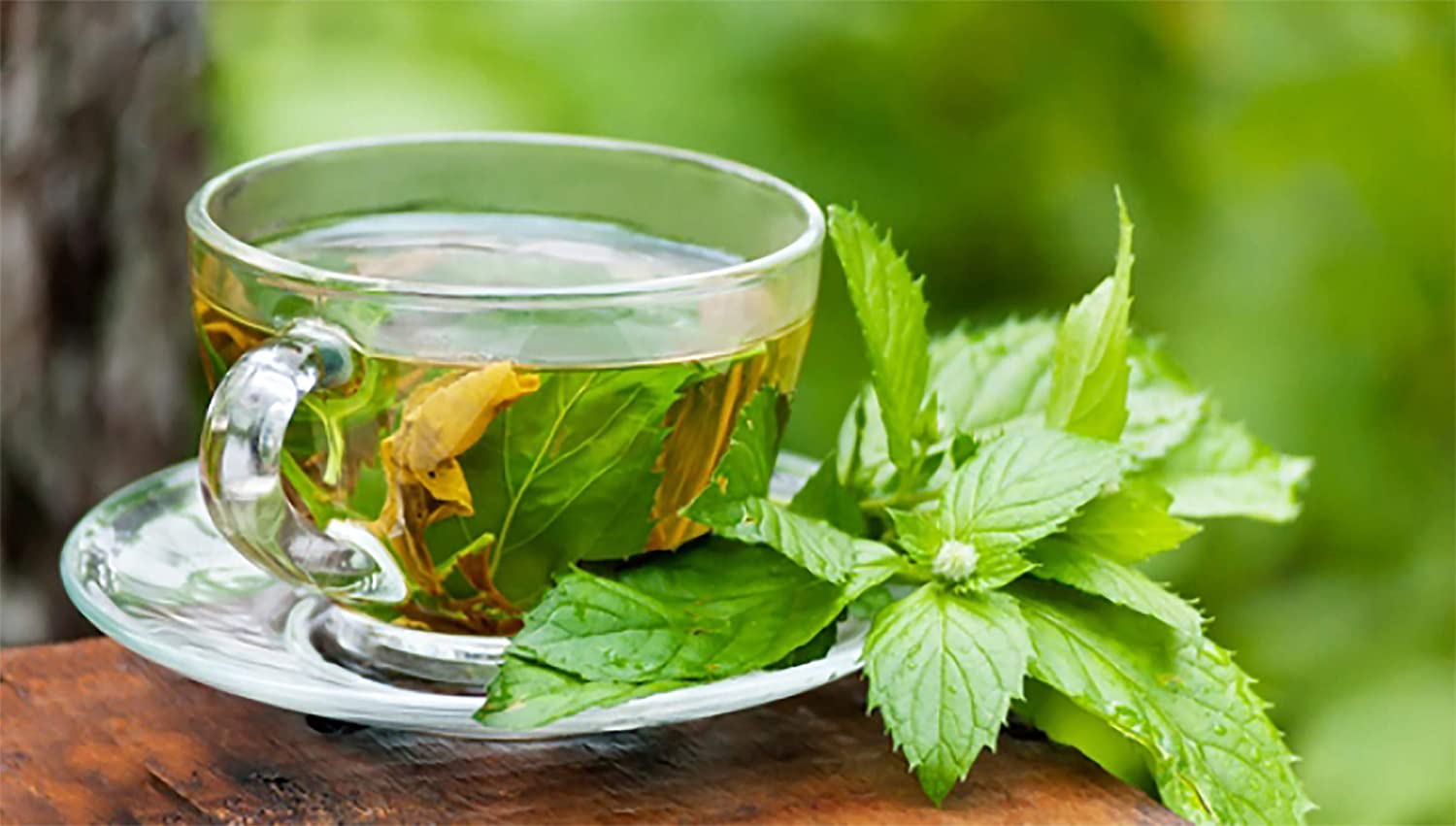The Scent leaf, botanically known as Ocimum gratissimum, is a fragrant herb that has been widely distributed throughout the world’s tropical and subtropical regions. Nigeria, Ghana, Cameroon, Madagascar, Southern Asia, and the Bismarck Archipelago are its natural habitats. Naturalization has occurred in Polynesia, Hawaii, Brazil, Panama, the West Indies, and Mexico.
It is tempting to dismiss the Scent leaf as just another sweet-smelling plant, yet it is much more than that. The scent leaf has antibacterial, antifungal, larvicidal, and antipyretic properties, making it useful in the treatment and prevention of illnesses and infections.
Scent Leaves include critical bioactive substances that give the aforementioned functions, such as tannins, phenols, calcium, phosphorus, iron, vitamin A, and others, all of which are necessary for human health.
In this article, we’ll take an in-depth look at what scent leaf is, its health benefits, side effects, and warnings.
What Is Scent Leaf?

Scent leaf is a fragrant tropical plant whose leaves are primarily used in cooking. Scent leaf extracts are also extensively used in traditional medicine to treat ailments like as fever, cough, and body aches.
Various Local Nigerian Names For Scent Leaf
- Igbo: Nshianwu
- Yoruba: Efirin
- Hausa: Daidoya
- Effik: Ntong
- Edo: Aramogbo
Difference Between Mint Leaf and Scent Leaf
There are a few key distinctions that can be made between mint and scent leaf (even if they look alike). The most noticeable distinction between the two is that mint leaf exudes an aroma reminiscent of peppermint, whereas scent leaf does not.
How To Use Scent Leaf
Fresh or dried scent leaves can be used to make meals such as black soup, pepper soup, and egusi soup.
It can also be made as tea or juiced and used as a medicinal herb to treat a variety of diseases.
Finally, aroma leaves can be mixed with mosquito coils, incense, lotions, or ointments to repel insects and reptiles.
How to Preserve Scent Leaves
Scent leaves can be preserved in a variety of methods, including:
1. Place scent leaves in a plastic bag and refrigerate (last for up to two weeks).
2. Blend scent leaf to form purée and store in the fridge.
3. Allow to dry and keep in a cool location.
Health Benefits of Scent Leaf

There are numerous health benefits of scent leaves and they include;
1. Eye Care
Scent leaf is high in Vitamin A, which helps good vision. The retina of the eyes requires vitamin A in the form of retinal, which interacts with the protein opsin to generate rhodopsin, the light-absorbing molecule required for both scotopic vision (low-light) and color vision.
A lack of vitamin A can be harmful to the eyes, causing xerophthalmia (a medical disorder in which the eye fails to produce tears) and night blindness, both of which can be avoided by consuming sufficient amounts of scent leaves.
Also Read: 5 Health Benefits of Fruits and Vegetables for Your Diet
Pregnant women should avoid consuming too much vitamin A and, by extension, the smell of leaves since it can cause birth abnormalities. In addition, information on the safety and efficacy of the drug during lactation is scarce.
2. Improves Heart Function
Scent leaves include calcium and magnesium, both of which assist to lower bad cholesterol (LDL cholesterol) and enhance blood circulation. Because low-density lipoprotein (LDL) cholesterols raise the risk of Coronary Artery Disease in adults, consuming scent leaves can help to minimize this ever-present risk.
Heart and arterial issues caused by clogged arteries are almost avoidable if sufficient amounts of scent leaves are consumed.
3. Lowers Blood Sugar
Scent leaves have an unrivaled capacity to decrease blood sugar and preserve the pancreatic islets that create insulin from harm. A study on mice found that scent leaves were effective in decreasing blood sugar levels.
Another randomized trial found that eating considerable amounts of scent leaves reduced blood sugar levels in Non-Insulin Dependent (NID) Diabetes Mellitus patients.
4. Promotes Regular Hair Growth
Hair loss is one of the most feared adverse effects of cancer chemotherapy. Orafidiya et al. discovered that the leaf essential oil of scent leaves (Ocimum oil) promoted hair development and follicular proliferation in cyclophosphamide-induced hair loss.
5. Reproductive Health
Scent leaves contain arginine, an amino acid that aids in the preservation of optimal penile health and sperm viability. It also contains substances including epigenin, fenkhona, and eugenol, which can help with erections.
Furthermore, the anetol and boron in the leaves can induce estrogen in women, while the same eugenol that is helpful in men helps to destroy the fungus that has been linked to vaginal discharge.
6. Treatment of Fungal Infections
Scent leaves have been demonstrated in studies to exhibit antifungal action against Penicillium chrysogenum (also known as Penicillium notatum), Candida albicans, and Microsporeum gyseum. Chloroform preparations of the leaves demonstrated significant antifungal action against the aforementioned fungus species. Thus, scent leaves, when crushed and put on skin lesions, aid in their cure.
7. Treatment of Respiratory Diseases
Aqueous extracts of scent leaves have shown effects on inflammation markers such as interleukins, protein kinases, and leukocytes/eosinophils in models of respiratory allergy (in vitro experiments evaluating effects on airway epithelial cells, in vivo studies in rodents) and can thus be used to treat respiratory problems.
The leaves are rubbed between the hands and sniffed to cure congested nostrils.
8. Wound Healing Activity
Scent leaf is extensively used in the dressing of neonatal umbilical cord and wounds because it is thought to keep the baby’s umbilical cord and wound surfaces sterile. The capacity of scent leaf to improve vascular permeability may explain its wound healing properties.
O. gratissimum leaf essential oil (Ocimum oil) formulations have been used as topical antiseptics and in the treatment of boils and pimples.
9. Food Preservatives
Scent leaves have been shown to have antibacterial effects. Because its extracts are plant-based, the ethanol extract can be utilized as a powerful food preservative to keep bacteria and fungi at bay, which would otherwise cause food spoiling. This is a less expensive and possibly healthier alternative to more often used preservatives.
10. Encourages Good Oral Hygiene.
When used as a chewing stick, the scent leaf stem destroys bacteria in the mouth and aids in the prevention of bad breath. It can also help to prevent tooth decay. Tea brewed from scent leaf leaves can be used as a tonic or as a gargle to soothe a sore throat.
11. Aids Digestion
Scent leaves can help reduce bloating and digestion. Brew fragrant leaves can soothe the stomach and aid with bowel evacuation. Heartburn can be relieved by drinking scent leaves tea.
12. Mosquito and insect repellant
Scent leaves contain larvicidal chemicals such as camphor, cineole, and limonene, which are detrimental to mosquitoes and insects. The leaves can be potted and placed in residential areas to repel houseflies, mosquitoes, and other insects.
This has a dual purpose in that it reduces the population of mosquitos and houseflies in dwellings, hence lowering the occurrences of malaria and intestinal disorders (caused by houseflies).
13. Anti-Inflammatory Effects
Scent leaves have been demonstrated to have anti-inflammatory characteristics similar to medications like aspirin and ibuprofen, but are gentler on the stomach linings. O. gratissimum leaf decoction is useful for treating menstruation discomfort, stomach ache, earache, and fever.
14. Properties that are antimutagenic
Several plant groupings have edible plants with antimutagenic action and chemopreventive potential. Organic solvent extracts of scent leaves have antimutagenic actions against reverse mutation generated by ethyl methanesulfonate (EMS), 4-nitrophenylenediamine, and 2-aminofluorine, according to research.
15. Diarrhea Treatment
Ethanol and hot water (100oC) extracts of scent leaves have been extensively proved to be effective against certain pathogenic bacteria known to induce diarrhea, including Staphylococcus aureus, Escherichia coli, Shigella sp., and Salmonella sp.
Also Read: Green Tomato and Scent Leaf Stew
It is thus possible that scent leaves can be prepared as a tea to treat diarrhea caused by the aforementioned microbes.
Furthermore, the use of scent leaves in the treatment of diarrhea can be related to the relaxing action of O. gratissimum essential oil, which is likely attributable to a direct influence on the smooth muscle of the ileum rather than an indirect effect on neurotransmitter release.
Scent Leaf Precautions, Warnings, and Side Effects

When eaten in meal quantities, scent leaf has almost no harmful side effects. However, taking a scent leaf extract as medicine can result in the following adverse effects:
1. Blood Pressure is Low:
Scent leaf extracts have been shown to decrease blood pressure. In persons with blood pressure, this can result in excessively low blood pressure.
2. Bleeding Problems:
Scent leaf oils and extracts may cause blood coagulation to lag and bleeding to rise. This might result in severe bleeding in people undergoing surgery or suffering from a bleeding problem.
Frequently Asked Questions About Scent Leaf
What Is Scent Leaf Botanical Name?
What Is Scent Leaf’s Nutritional Value?
Calories: 22
Protein: 3.2g
Fat: 0.6g
Carbs: 2.7g
Potassium: 295 mg
Sodium: 4mg


